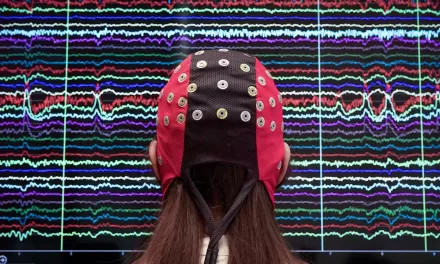Researchers at the Icahn School of Medicine at Mount Sinai have developed an advanced computational tool named iDOMO, designed to enhance the prediction of drug synergy and accelerate the development of combination therapies for complex diseases. The study, published in Briefings in Bioinformatics on February 20, highlights iDOMO’s superior ability to identify synergistic drug combinations using gene expression data, outperforming existing methods.
Advancing Drug Discovery Through Computational Approaches
Combination therapies, which involve the use of multiple drugs targeting different pathways involved in a disease, are increasingly vital for treating complex conditions such as cancer. However, the experimental process of identifying effective drug pairs is both costly and time-consuming.
iDOMO offers a computational solution by analyzing gene expression data—which measures gene activity levels in biological samples—and gene signatures, which are distinct patterns of gene activity linked to specific conditions such as disease states or drug responses. By comparing the gene signatures of drugs and diseases, iDOMO predicts both the beneficial and detrimental effects of potential drug combinations.
“Our approach provides a more effective way to predict drug combinations that could serve as novel therapeutic options for treating human diseases. This could significantly expand treatment options for clinicians and improve outcomes for patients who do not respond to standard therapies,” said Dr. Bin Zhang, senior author of the study and the Willard T.C. Johnson Research Professor of Neurogenetics, as well as Director of the Mount Sinai Center for Transformative Disease Modeling.
Validation in Triple-Negative Breast Cancer
The study applied iDOMO to triple-negative breast cancer, an aggressive and difficult-to-treat cancer type. The model identified a promising drug combination—trifluridine and monobenzone—which was subsequently tested in in vitro experiments. The results confirmed that this combination inhibited the growth of triple-negative breast cancer cells more effectively than either drug alone, validating iDOMO’s predictive accuracy.
“By leveraging computational approaches like iDOMO, we can prioritize the most promising drug combinations for further experimental validation, potentially accelerating the discovery of new treatments for a wide range of diseases,” Dr. Zhang added.
Implications for Medicine and Future Research
iDOMO presents clinicians with additional therapeutic options, potentially leading to new and more effective treatments for patients resistant to conventional therapies. The tool offers a cost-efficient, scalable solution for identifying synergistic drug pairs, paving the way for broader applications across various diseases.
Future research aims to expand iDOMO’s application beyond triple-negative breast cancer, refine its predictive capabilities, and integrate it into broader drug development pipelines to enhance treatment strategies for multiple conditions.
Source: The Mount Sinai Hospital / Mount Sinai School of Medicine
Journal Reference: Zhou, X., et al. (2024). iDOMO: Identification of Drug Combinations via Multi-Set Operations for Treating Diseases. Briefings in Bioinformatics. doi.org/10.1093/bib/bbaf054
Disclaimer: This article is for informational purposes only and does not constitute medical advice. Patients should consult their healthcare providers before making any changes to their treatment plans.












